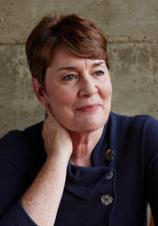The Child
Review
The Child
THE CHILD can be read as a companion or a sequel of sorts to THE WIDOW, but it can also be read independently. Other than the one-word titles, the main thread connecting the two novels is the central character of Kate Waters, a seasoned investigative journalist for a London newspaper. Kate is at the heart of the investigations in both books, and readers who first met Kate in THE WIDOW will be eager to learn more about her, but the other characters’ stories are equally compelling.
Kate’s interest is piqued by a small news item, the kind of thing that a lesser reader might have simply skimmed over or overlooked altogether: workers excavating a building site have uncovered the skeleton of an infant. At first, no one knows if the child’s body has been in the grounds of the apartment block for years, decades or even more. But Kate certainly is not going to just sit back and let this story lie fallow, especially not when she’s trying to stay several steps ahead of her millennial colleagues on the digital news desk and when her fellow print journalists are facing layoffs.
"[E]ven if astute readers have already put together the pieces long before the conclusion, they’re likely to keep reading to see how the tragic stories are resolved."
Interspersed with Kate’s investigations are glimpses into two other women’s perspectives. Angela is more or less a contemporary of Kate’s. Despite having raised two loving children, she remains haunted by the disappearance of her newborn daughter from a maternity ward decades earlier. When the baby’s body is found, Angela grasps at new hope that this finally might be the answer to the mystery that has plagued her family for years.
Meanwhile, Emma, a slightly younger woman with a much older husband, is also fixated on this news story. She’s convinced that she has a connection with the baby, although no one --- her husband, her mother, or her mother’s one-time boyfriend --- believes her story. Emma has struggled with mental illness for years. Are her latest conjectures just a manifestation of her illness, or is there something more to it?
As the story continues, Fiona Barton presents the perspectives of other characters as needed to broaden the narrative or advance the plot. Initially, the various narrative threads are a little slow to unwind, and readers may grow impatient with the novel’s relatively leisurely pace. However, the second half picks up speed substantially, and even if astute readers have already put together the pieces long before the conclusion, they’re likely to keep reading to see how the tragic stories are resolved.
In addition to the suspense plot, Barton interjects humor (largely in the form of Kate’s “odd couple” mentorship of a much younger aspiring journalist) and numerous reflections on the importance of traditional investigative journalism in uncovering stories like these, essential accounts that might have been overlooked were it all left to the bloggers constantly on the hunt for the “next big thing.”
Reviewed by Norah Piehl on June 30, 2017
The Child
- Publication Date: March 6, 2018
- Genres: Fiction, Psychological Suspense, Psychological Thriller, Suspense, Thriller
- Paperback: 400 pages
- Publisher: Berkley
- ISBN-10: 110199049X
- ISBN-13: 9781101990490





